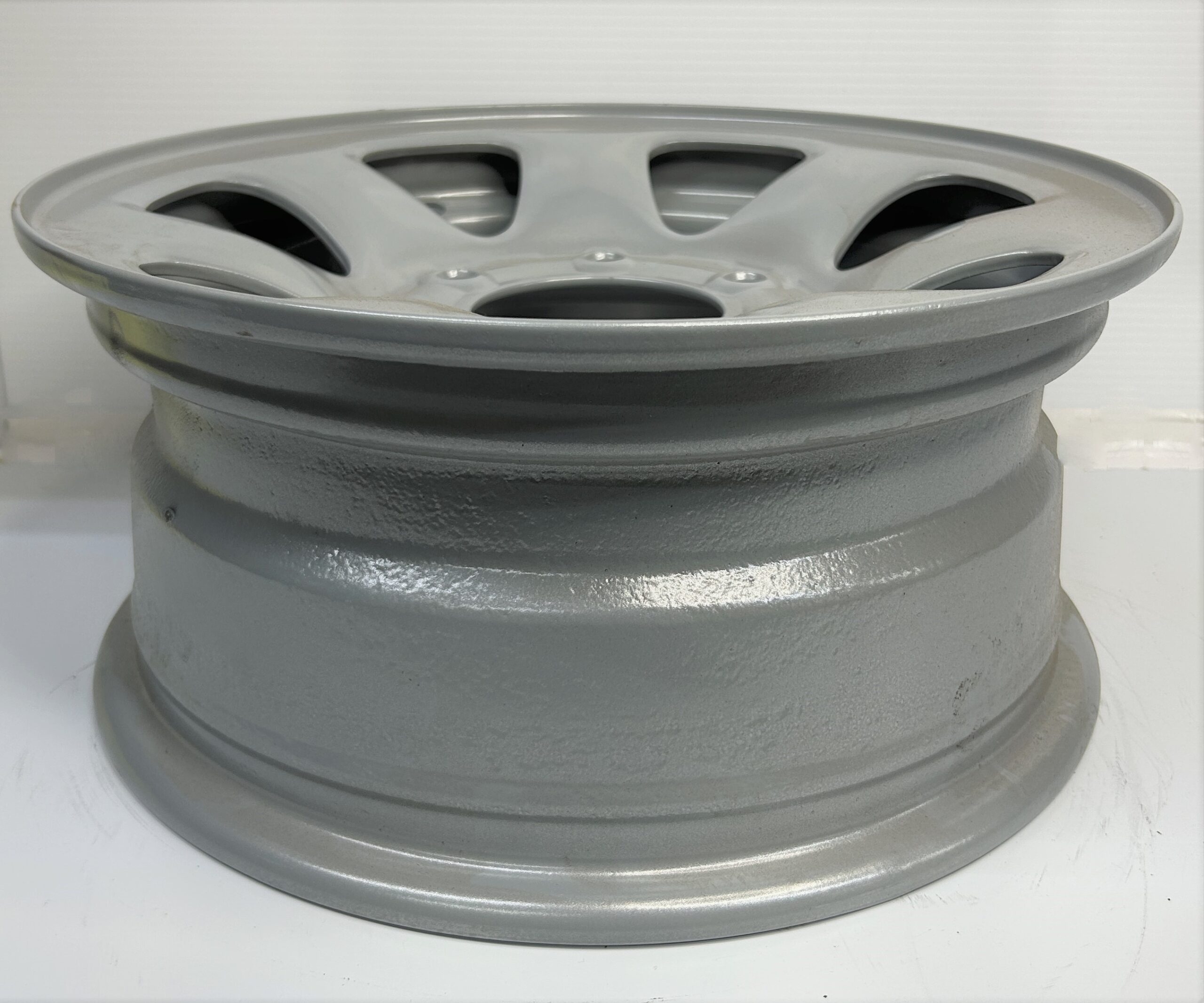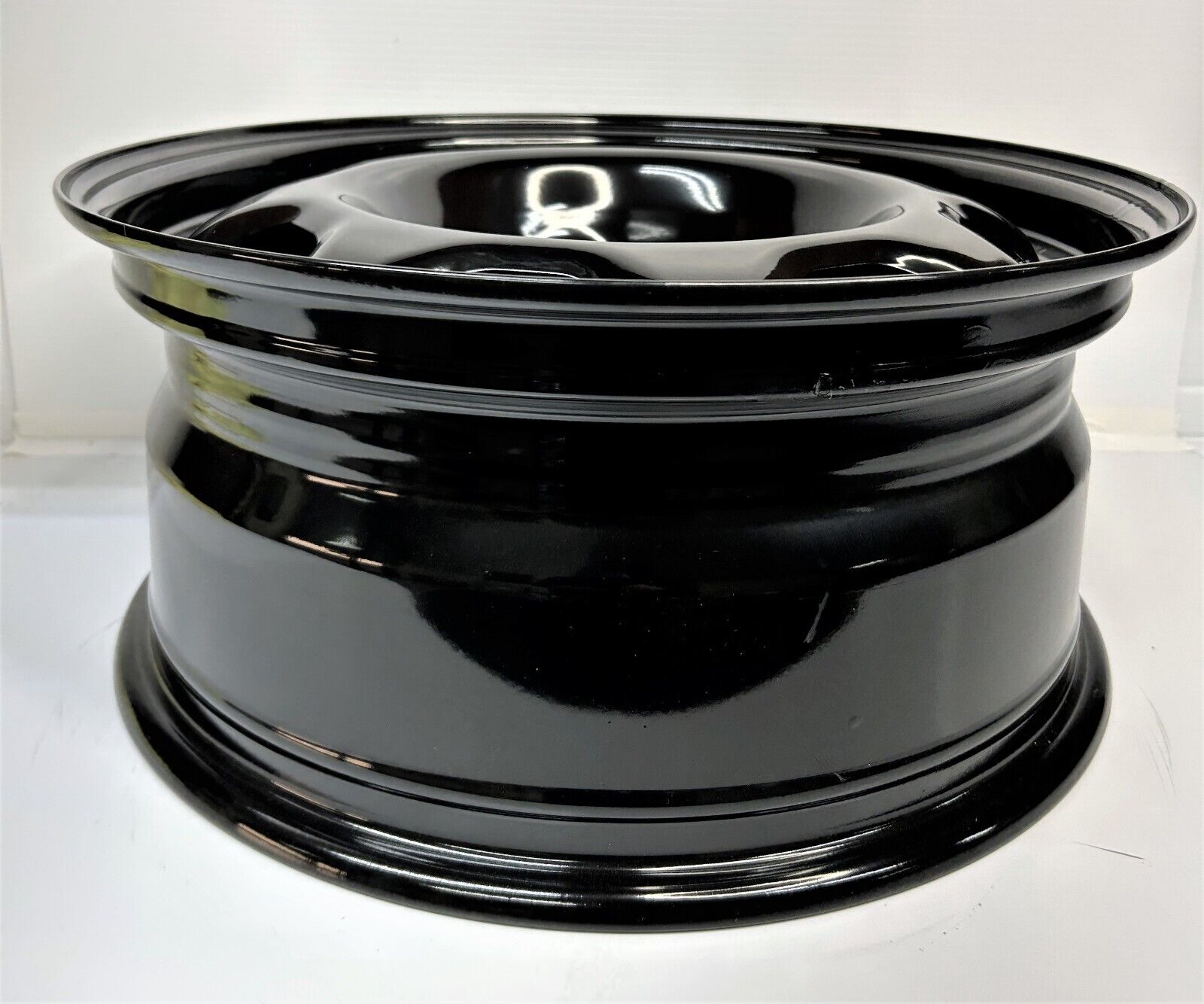The Ultimate Guide to 6-Lug Steel Wheels: Strength, Affordability, and the Right Choice for Your Truck
6-lug steel wheels are a staple in the truck and SUV world. They're known for their robustness, cost-effectiveness, and suitability for a wide range of applications, from everyday driving to demanding off-road adventures. Choosing the right wheel, however, requires understanding their features, benefits, and potential drawbacks. This comprehensive guide will walk you through everything you need to know about 6-lug steel wheels.
6 Lug Steel Wheel
Why 6 Lugs? Understanding the Bolt Pattern
The "6-lug" designation refers to the bolt pattern of the wheel. This means the wheel is secured to the vehicle's hub using six lug nuts. This configuration is commonly found on trucks and SUVs because it provides a stronger and more secure connection compared to wheels with fewer lugs.
- Load Capacity: The increased number of lugs distributes the load more evenly. This is crucial for vehicles that regularly carry heavy loads or tow trailers.
- Durability: Six lugs offer enhanced resistance to stress and strain, making them ideal for off-road driving and rough terrain.
- Safety: A 6-lug pattern provides an extra margin of safety, reducing the risk of wheel failure under demanding conditions.
Steel vs. Aluminum: The Core Difference

Steel and aluminum are the two most common materials used for manufacturing wheels. Each material has its own set of advantages and disadvantages. Understanding these differences is crucial for making an informed decision.
Steel Wheels: The Workhorse Choice
Steel wheels are typically made from stamped steel. They are known for their strength, affordability, and ease of repair.
- Strength and Durability: Steel is incredibly strong and resistant to bending or cracking. This makes steel wheels ideal for heavy-duty applications and off-road driving.
- Affordability: Steel wheels are generally less expensive than aluminum wheels. This makes them a budget-friendly option for truck and SUV owners.
- Repairability: If a steel wheel gets bent or damaged, it can often be repaired by a professional. This can save you money compared to replacing a damaged aluminum wheel.
- Weight: Steel wheels are heavier than aluminum wheels. This can slightly impact fuel economy and handling.
- Aesthetics: Steel wheels often have a more utilitarian appearance. However, they can be painted or powder-coated to improve their aesthetics.


Aluminum Wheels: The Lightweight Option
Aluminum wheels, also known as alloy wheels, are made from an alloy of aluminum and other metals. They are known for their lighter weight and aesthetic appeal.
- Lighter Weight: Aluminum wheels are significantly lighter than steel wheels. This can improve fuel economy, acceleration, and handling.
- Aesthetics: Aluminum wheels are available in a wide variety of styles and finishes. This allows you to customize the look of your vehicle.
- Heat Dissipation: Aluminum wheels dissipate heat more effectively than steel wheels. This can improve braking performance, especially under demanding conditions.
- Cost: Aluminum wheels are generally more expensive than steel wheels.
- Repairability: Aluminum wheels are more difficult to repair than steel wheels. Cracks or significant damage often require replacement.
Advantages of 6-Lug Steel Wheels
Let's delve deeper into the specific benefits of choosing 6-lug steel wheels for your truck or SUV.
- Cost-Effectiveness: This is arguably the biggest advantage. Steel wheels are significantly cheaper to manufacture than alloy wheels, making them an accessible option for budget-conscious buyers.
- High Load Capacity: As mentioned earlier, the 6-lug pattern combined with the inherent strength of steel makes these wheels ideal for vehicles that frequently haul heavy loads or tow trailers. This is crucial for work trucks and SUVs used for recreational towing.
- Superior Durability: Steel wheels are incredibly resilient. They can withstand impacts and stresses that would easily damage an alloy wheel. This makes them a great choice for off-road adventures where rocks, ruts, and other obstacles are common. Based on my experience, a good set of steel wheels can take a beating and keep on rolling.
- Easy Repair: Dents and bends in steel wheels can often be hammered out and re-welded by a professional. This is a major advantage over alloy wheels, which are often irreparable when damaged. This repairability translates to significant cost savings over the long term.
- Simple Design: While some might see this as a disadvantage, the simple design of steel wheels can be a plus. They are easy to clean and maintain, and their understated look can be a good fit for certain vehicles.
- Ideal for Winter Use: Steel wheels are less susceptible to corrosion from road salt and other winter chemicals compared to alloy wheels. This makes them a practical choice for winter tires. Pro tip from us: Consider getting a dedicated set of steel wheels for your winter tires to protect your nicer alloy wheels from the harsh winter elements.
Disadvantages of 6-Lug Steel Wheels
While 6-lug steel wheels offer numerous benefits, it's important to be aware of their potential drawbacks.
- Heavier Weight: Steel is a denser material than aluminum, making steel wheels heavier. This can slightly reduce fuel economy and acceleration. The difference is usually not significant, but it's worth considering.
- Limited Style Options: Steel wheels typically come in a limited range of designs and finishes. They may not be as visually appealing as alloy wheels. However, you can paint or powder-coat them to customize their appearance.
- Susceptibility to Rust: Steel is prone to rust if the protective coating is damaged. Regular cleaning and maintenance are essential to prevent rust formation.
Choosing the Right 6-Lug Steel Wheel: Key Considerations
Selecting the right 6-lug steel wheel involves considering several factors, including size, offset, backspacing, and load rating.
- Size: The wheel diameter and width must match the specifications of your vehicle. Consult your owner's manual or a tire professional to determine the correct size.
- Bolt Pattern: Ensure the bolt pattern of the wheel matches the bolt pattern of your vehicle's hub. A 6x5.5" bolt pattern is a common size for trucks and SUVs.
- Offset: The offset is the distance between the wheel's mounting surface and its centerline. The correct offset is crucial for proper wheel fitment and handling.
- Backspacing: Backspacing is the distance from the wheel's mounting surface to its inner edge. It affects the wheel's clearance with suspension components.
- Load Rating: The load rating indicates the maximum weight the wheel can safely support. Ensure the load rating is sufficient for your vehicle's weight and intended use. Common mistakes to avoid are choosing wheels with insufficient load ratings, especially if you plan to carry heavy loads or tow trailers.
Where to Buy 6-Lug Steel Wheels
6-lug steel wheels are available from a variety of sources, including:
- Tire and Wheel Shops: Local tire and wheel shops offer a wide selection of wheels and can provide expert advice on fitment and compatibility.
- Online Retailers: Online retailers offer a convenient way to shop for wheels. Be sure to check reviews and verify the retailer's reputation before making a purchase.
- Automotive Parts Stores: Many automotive parts stores carry a selection of steel wheels.
- Used Wheel Marketplaces: You can often find used steel wheels at a discounted price. However, be sure to inspect the wheels carefully for damage before purchasing.
Maintenance Tips for 6-Lug Steel Wheels
Proper maintenance can extend the life of your 6-lug steel wheels and keep them looking their best.
- Regular Cleaning: Wash your wheels regularly with soap and water to remove dirt, grime, and road salt.
- Rust Prevention: Apply a rust inhibitor to protect the wheels from rust.
- Inspect for Damage: Regularly inspect your wheels for dents, cracks, and other damage.
- Torque Lug Nuts: Ensure your lug nuts are properly torqued to the manufacturer's specifications.
Customizing Your 6-Lug Steel Wheels
While steel wheels are often seen as utilitarian, there are several ways to customize their appearance.
- Painting: Painting your steel wheels is a simple and affordable way to change their look. Choose a durable paint that is designed for automotive use.
- Powder Coating: Powder coating provides a durable and long-lasting finish. It is more expensive than painting, but it offers superior protection against rust and scratches.
- Center Caps: Adding center caps can improve the appearance of your steel wheels. Choose center caps that complement your vehicle's style.
- Wheel Skins: Wheel skins are plastic covers that snap onto your steel wheels. They are an affordable way to change the look of your wheels without replacing them.
6-Lug Steel Wheels: A Practical and Reliable Choice
6-lug steel wheels offer a compelling combination of strength, affordability, and durability. They are a practical choice for truck and SUV owners who need a reliable wheel that can withstand demanding conditions. While they may not be as flashy as alloy wheels, their ruggedness and cost-effectiveness make them a smart investment for a wide range of applications. By understanding the benefits and drawbacks of 6-lug steel wheels, you can make an informed decision and choose the right wheel for your needs.
External Link: For more information on wheel maintenance and safety, you can visit the Tire Industry Association's website: https://www.tireindustry.org/
Internal Link: Consider checking out our article on [Tire Size Guide] (replace with an actual link to your blog post about tire sizes) for more information on matching the correct tires to your wheels.
In conclusion, 6-lug steel wheels remain a solid choice for many truck and SUV owners, especially those prioritizing durability, affordability, and reliability. By carefully considering your needs and the factors outlined in this guide, you can confidently select the perfect set of 6-lug steel wheels for your vehicle.
Comments
Post a Comment